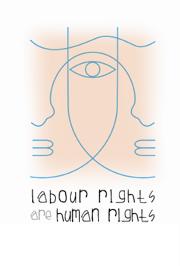This is an archive of news stories and research from the National Union of Public and General Employees. Please see our new site - https://nupge.ca - for the most current information.
“...Section 21 of the Code is discriminatory as being a significant hindrance on their ability to exercise their fundamental right of freedom of association.”
 Québec (13 March 2013) – Farm workers employed on small farms in Québec have won the right to bargain collectively, based on a decision by the Québec Superior Court yesterday.
Québec (13 March 2013) – Farm workers employed on small farms in Québec have won the right to bargain collectively, based on a decision by the Québec Superior Court yesterday.
The ruling by Justice Thomas M. Davis found that Section 21 of the Québec Labour Code, which stipulates that agricultural workers are excluded from collective bargaining on farms that have three employees or less working on a year-round basis, is constitutionally invalid.
The decision stems from a Charter challenge the United Food and Commercial Workers (UFCW) Canada launched at the Québec Labour Commission in July 2008 where it was seeking certification of a bargaining unit constituted exclusively of migrant workers from Mexico. UFCW Canada argued the section of the Code violated freedom of association rights (Section 2 (d) of the Charter) because it denies agricultural workers employed on farms that have three or less employees, the right to join a union and bargain successfully.
The challenge also argued the legislation violated the equality section of the Charter (Section 15) in that it was discriminatory towards farm workers, and particularly, migrant workers. Section 15 of the Charter provides that individuals have “the right to the equal protection and equal benefit of the law without discrimination”.
In April 2010, the Labour Commission ruled in favour of the union's Section 2 (d) challenge but dismissed the union’s equality rights argument. The Québec government then applied to the Québec Superior Court for a judicial review of the Commission's decision.
Justice Davis ruled that "in relationship to agricultural workers who work on farms which ordinarily and continuously employ less than three workers, Section 21 of the Code is discriminatory as being a significant hindrance on their ability to exercise their fundamental right of freedom of association.” He however upheld the Commission's decision to rule against UFCW Canada Section 15 (1) argument, ruling “any differences in treatment does not arise as a result of their status as migrant workers, but rather as a result of the nature of the industry in which they work.”
NUPGE
The National Union of Public and General Employees (NUPGE) is one of Canada's largest labour organizations with over 340,000 members. Our mission is to improve the lives of working families and to build a stronger Canada by ensuring our common wealth is used for the common good. NUPGE
